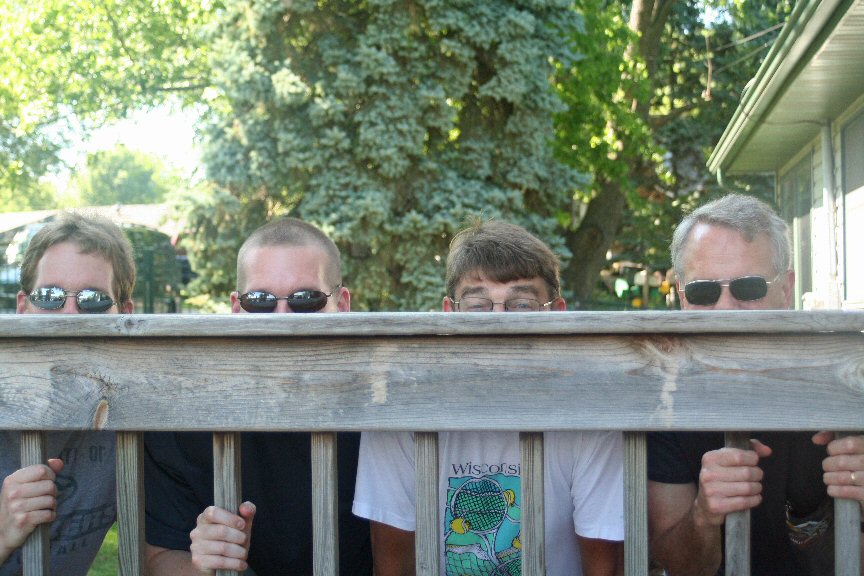
I am completely envious and I, like, totally admit it.
This guy Steve Burri (one of the fellows in this picture) is way better than me when it comes to sending up goofy “zillions of universes” cosmology:
The scientists and researchers employed in my secret basement laboratory are quite an ecclectic bunch. We have staff that wash their hands and brush their teeth after every thought as well as those whose superstitions will not allow them to change their underwear until the completion of their research project. We have committed Christians as well as atheists who should be committed. We have cool, but mostly we have nerd. One biochemist’s 5 year old was visiting and after talking to several researchers said to her dad, “Daddy, these guys make even Todd and Lance seem cool.” Her dad just shook his head and said, “Sweetie, you have never met Todd or Lance, have you?” That little girl has the cutest giggle.
Perhaps the most unusual character in our lab is Alfred the Atheist, one of our physicists. He’s a Landscaper of the String Theory clan. Alfred is always spewing equations about which no one else has a clue. Nobody is ever sure if he really knows what he is talking about. Our only evidence on these matters occurs when he does calculations on his super computer. Often after a result is obtained, his computer smacks itself on its monitor with its own mouse and exclaims, “Boo-yah! My hard drive just had an orgasm!” Then it has a smoke.
Alfred has long been determined to calculate and describe the nature of other universes in the Landscape. (Some say that he hasn’t changed underwear in 3 years; others claim he goes ‘commando.’) He declares that he wants to prove beyond all question that God doesn’t exist. His computer now has a 2 pack-a-day habit.
And it gets better when “Alfred”, sort of,
discovers something …
I can only get over this fit of envy by writing another book.
Hey, I have been a book editor most of my adult life. I know books. I know them well.
The excellent Burris, pictured above, maybe don’t.
Yes, book writing is indeed a dying art, and I’ll die with it – but … not yet.
I will write one more book. Meanwhile, enjoy Steve Burri’s spoof, and don’t blame me if you are one Offended bunny … I, as it happens, do NOT care … *
Also, just up at Colliding Universes:
Universe arranged like nautilus shell on a large scale? (Well, would you prefer it had been arranged like a losing hand in poker?) Read More ›
